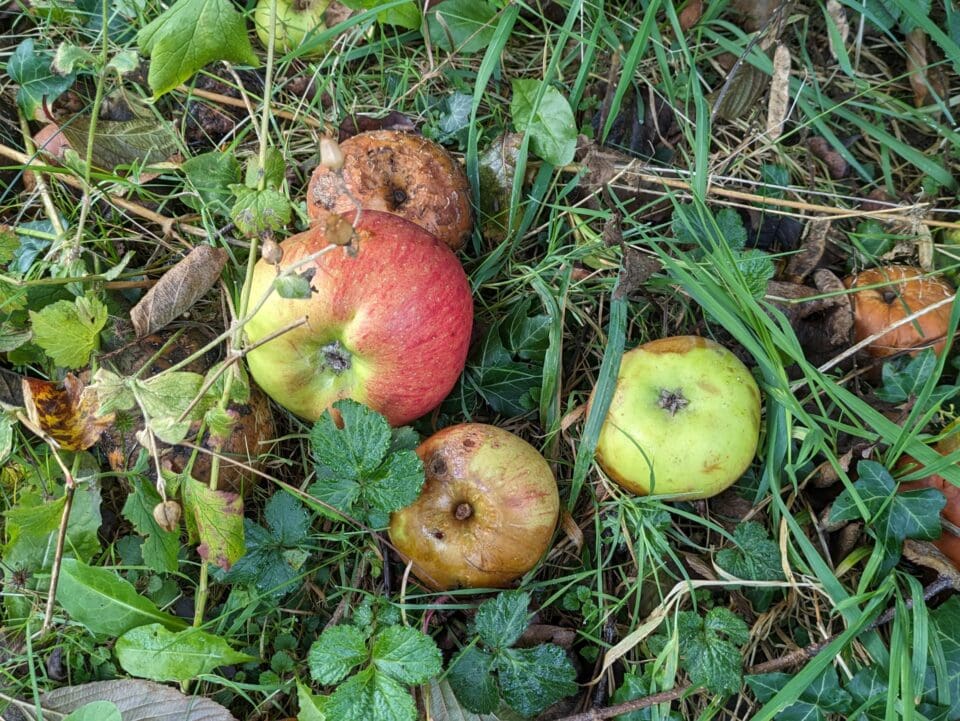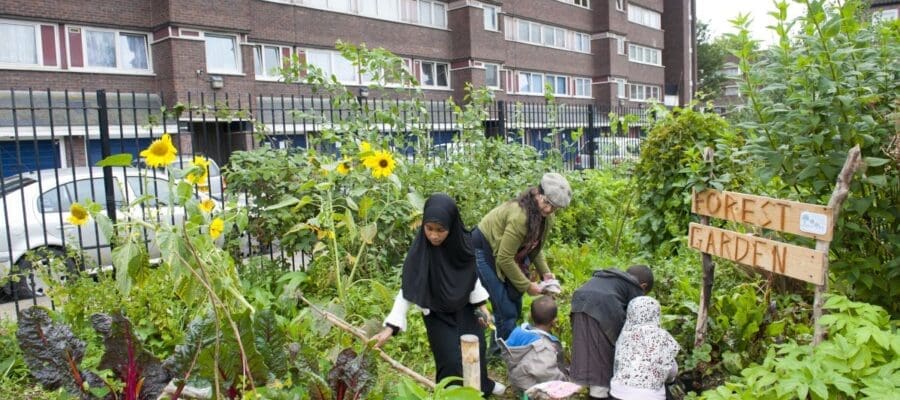Thousands of Coronation Gardens for Food and Nature pledged since June
- New partnership encourages communities to plant fruit trees this autumn
- Events, recipes and harvesting tips – join us to celebrate Apple Day on 21st October!
- Over 2,200 Coronation Gardens for Food & Nature pledged since June
Communities are being encouraged to plant fruit trees and to revitalise community orchards by the Coronation Gardens for Food and Nature partnership. It is estimated that around 90% of traditional orchards have been lost since the 1950s through neglect, development, and conversion to more intensive modern orchards.
Enjoy more Kitchen Garden reading in the monthly magazine.
Click here to subscribe & save.
Traditional orchards are prized for their value to wildlife – fruit trees that are free of pesticides are brilliant for insects and lichen, as well as birds and mammals that enjoy the fallen fruit. These special places often feature a mosaic of habitats including wildflower meadows and hedgerows. This provides homes for birds, bats and pollinators such as bees and butterflies – as well as producing food for people.

Windfall apples offer a welcome boost of food for birds and other hungry wildlife
The UK Food Security Report 2021 identified climate change and nature loss as leading threats to the nation’s food supply. Coronation Gardens for Food and Nature believes fruit growing has a key role to play in sustainable local food production – and that includes growing fruit in small spaces as well as on allotments.
People planting Coronation Gardens for Food and Nature are urged to avoid using pesticides and peat-based compost – and to ensure their gardens provide features that benefit wildlife. More than 2,200 backyards, balconies, school grounds and workplaces have been pledged as edible gardens and havens for wildlife since June.
Autumn Barlow, Coronation Gardens project manager at The Wildlife Trusts, says:
“It’s fantastic to see the enthusiasm shown by people across the UK to champion wildlife-friendly gardening in their communities; growing nutritious food, and giving wildlife a boost. We have to help nature everywhere, and each new tree, pond or patch of wildflowers makes a difference. Fruit trees are wonderful for everyone – people and wildlife alike – and so we hope many will take up the mantle and get planting this autumn.”
Alice Whitehead, Communications Officer at sustainable gardening charity Garden Organic, says:
“Planting a fruit tree is easy to do, so if you’ve not grown one before, then we’d encourage anyone to have a go – they bring so many benefits. From free local fruit, to helping wildlife by providing a home and food for insects and birds, fruit trees provide joy all year round. What’s even better, is that no matter the space you’ve got available – be it patio, small garden or allotment – fruit trees come in all shapes and sizes. They don’t need to be huge, with dwarf varieties suitable for large pots or you can even train apple trees to be stepped over on an allotment!”
Matt Hancock, Master of the Worshipful Company of Fruiterers, says:
“As modern-day farming in the UK is experiencing something of a national crisis, it is vital that we grab every opportunity to shout about the merits of growing fresh fruit in our communities, whilst also improving our biodiversity. The wonders of the British apple and its rich diverse history should be celebrated, as we start a new British Apple season.”
As October signals the season of harvest, Coronation Gardens for Food and Nature will celebrate Apple Day on the 21st October – a reminder of the diversity of apples on our islands, as well as their cultural, social and historical significance. There are more than 2,500 varieties of apples in the UK, which means you could eat a different type of apple every day for more than six years. Apple trees are best planted between October and March when their roots have the best chance of establishing during the wetter winter months. In autumn and winter, it is possible to buy cheaper, bare root trees that have the added benefit of not being sold in plastic pots.
Fruit trees are sometimes planted in memory of people and pets, providing a living memorial that will last for decades to come.
For Apple Day events, recipes and planting and harvesting tips see mycoronationgarden.org
Read Garden Organic’s ‘15 reasons to plant a fruit tree’: 15 reasons to plant a fruit tree
Coronation Gardens for Food and Nature is run by The Wildlife Trusts, Incredible Edible, Garden Organic and the NFWI (National Federation of Women’s Institutes). The scheme, funded by the National Lottery Heritage Fund is empowering communities to grow food and help wildlife by creating space for nature in private gardens and in shared greenspaces.
 Enjoy more Kitchen Garden reading in the monthly magazine. Click here to subscribe.
Enjoy more Kitchen Garden reading in the monthly magazine. Click here to subscribe.
Sign-up to the Kitchen Garden Magazine Newsletter
Enter your e-mail address below to see a free digital back issue of Kitchen Garden Magazine and get regular updates straight to your inbox…
You can unsubscribe at any time.
About the Author
- The Cottage Garden Society ‘Grow In Pots’ For The Malvern Show 9-12 May - 12th April 2024
- FREE TREES FOR SCHOOLS - 4th January 2024
- What to do with your tree after Christmas - 22nd December 2023









